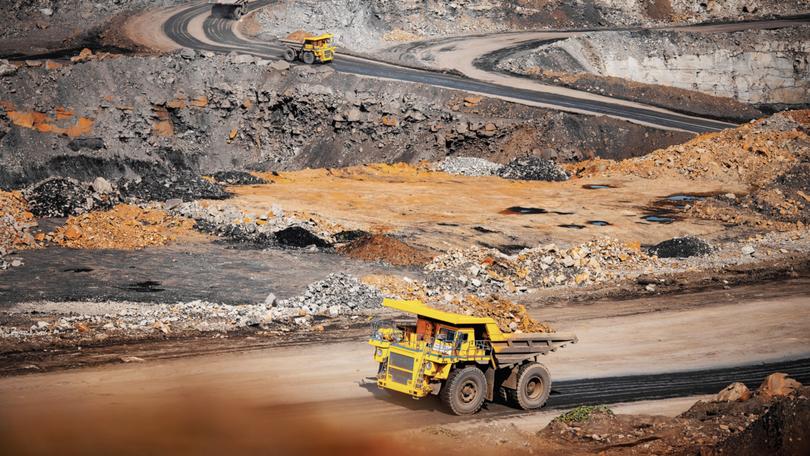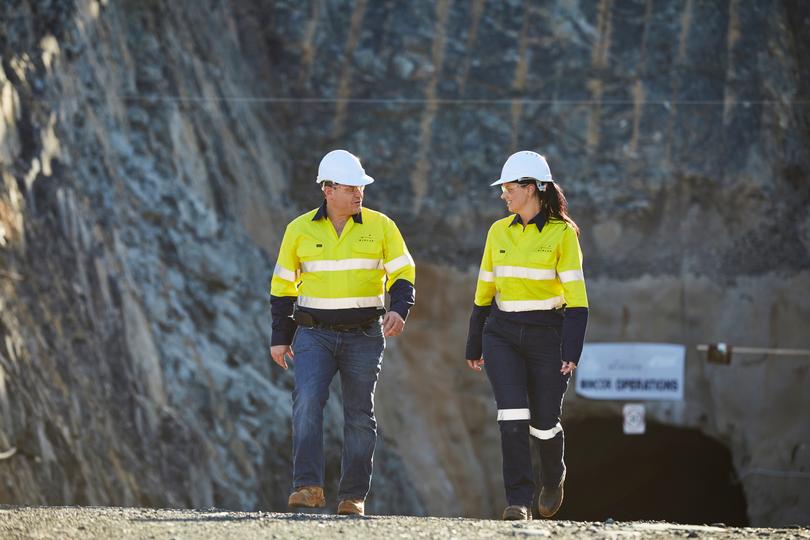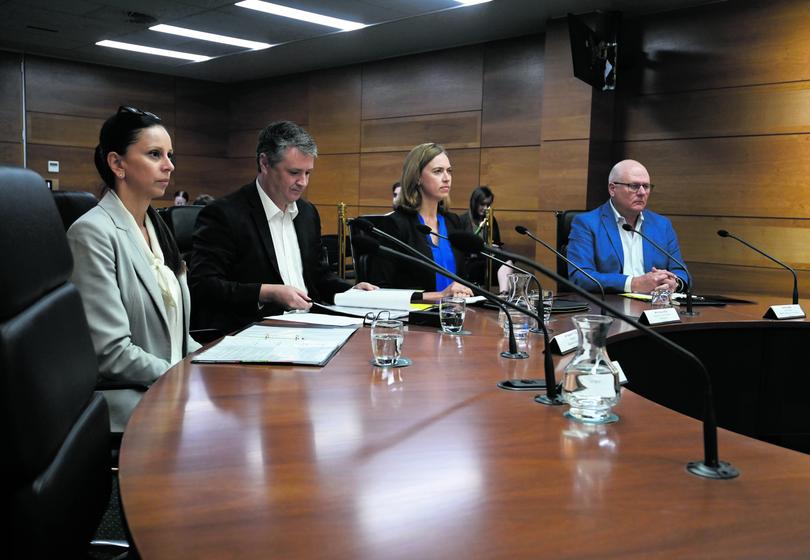Landmark study of 2500 resource sector workers finds one-in-five FIFO women sexually harassed
One in five women in the resources industry is facing unwanted sexual attention and coercion while at work, according to a new landmark study of 2500 employees.

One in five women in the resources industry is facing unwanted sexual attention and coercion while at work, with the most common complaint being unwanted touching.
That is just one of the findings of a landmark study into FIFO sexual misconduct, which has found companies are still lagging in addressing the issue.
The damning results revealed that women remain disproportionately impacted by bullying and sexual misconduct.
Sign up to The Nightly's newsletters.
Get the first look at the digital newspaper, curated daily stories and breaking headlines delivered to your inbox.
By continuing you agree to our Terms and Privacy Policy.The study found:
— Only 53 per cent of women said they felt physically safe at work compared to 73 per cent of men;
— More than 40 per cent reported being put down or condescended to;
— One-in-three in the past year were subject to offensive sexist remarks — such as accusations they’re hired just to fill quotas;
— And up to 19 per cent reported unwanted sexual attention or coercion in the past year — especially unwanted touching;
One anonymous respondent described being “habitually harassed”.
“It just wore me down to the point where I just couldn’t take it anymore. It was really demoralising,” she said.

The findings are a portion of the four-year sweeping study, which seeks to deep-dive into the causes, trends, management, and solutions to the problems exposed by an investigation by The West Australian.
Despite the industry vowing to clean up the sector in the wake of a WA parliamentary inquiry and its brutal 2022 “Enough is Enough” report, this Government-commissioned independent report highlighted that some companies were yet to act.
Human resources departments and work health and safety representatives who were surveyed revealed while companies held firm on a zero-tolerance policy for alcohol and drugs, some didn’t have adequate policies to deal with and mitigate sexual misconduct.
One in 10 companies had either no, or poor, little policies to address allegations of bullying, sexual harassment and assault. And almost 30 per cent fell short on training for line managers to identify and manage the issues.
One female worker reported that companies introduced training after the inquiry but described it as a “tick and flick” exercise “presented so poorly they even made a complaint about it”.
Companies also struggled to understand the scope of the problem in their organisations, with 33 per cent having no-to-poor little systems set up to monitor and analyse prevalence.
The study, which surveyed more than 2500 resource sector workers, will provide baseline research on the issue.
Previously, the resources sector had little to no literature available for industry and government to understand the drivers and scope of the problem. While sexual harassment is not an isolated experience to certain subgroups, there are areas that are deemed more at risk.
Women, young workers, labour-hire and frontline-based workers on remote sites were most likely to experience bullying, sexual abuse and harassment compared to CBD staff.
LGBTQI+, Aboriginal and Torres Strait Islanders —and those with disabilities — were also more at risk. Female workers in predominantly male teams experienced higher levels of sexist hostility.
The report highlighted the importance of witnesses of alleged misconduct to speak up, with victims four times more likely to confront or report their harasser if a bystander actively showed support.

Harassment was more likely to occur in work areas than in socially adjacent settings — like the on-site dining room — and often by multiple people.
The report suggested that “companies should prioritise improving the experiences of female FIFO workers who do not currently feel safe in their accommodation”.
Rosters were a big sticking point for workers’ wellbeing and could make or break someone’s intention to quit or remain in their job.
Those who weren’t on even-time rosters had the highest level of psychological distress. The worst roster for stress and intention to quit was 8:6, rotating with 7:7, which included day and night shifts.
Those on a two-week-on and two-week-off roster reported the lowest level of psychological distress.
The Centre for Transformative Work Design conducted a workers’ survey that informed the insights. To allow researchers to identify changes, the survey will be repeated in two years’ time. The final report will be released in 2026.
Originally published on The Nightly
